The Best Home Fragrances Instantly Elevate Your Space and Make It So Welcoming for Guests – These Are Our Ultimate Top Picks
Whether it's candles, reed, or electronic oil diffusers, we've tested the best for all homes and budgets so you can indulge in a treat, or tick off your Christmas shopping with ease

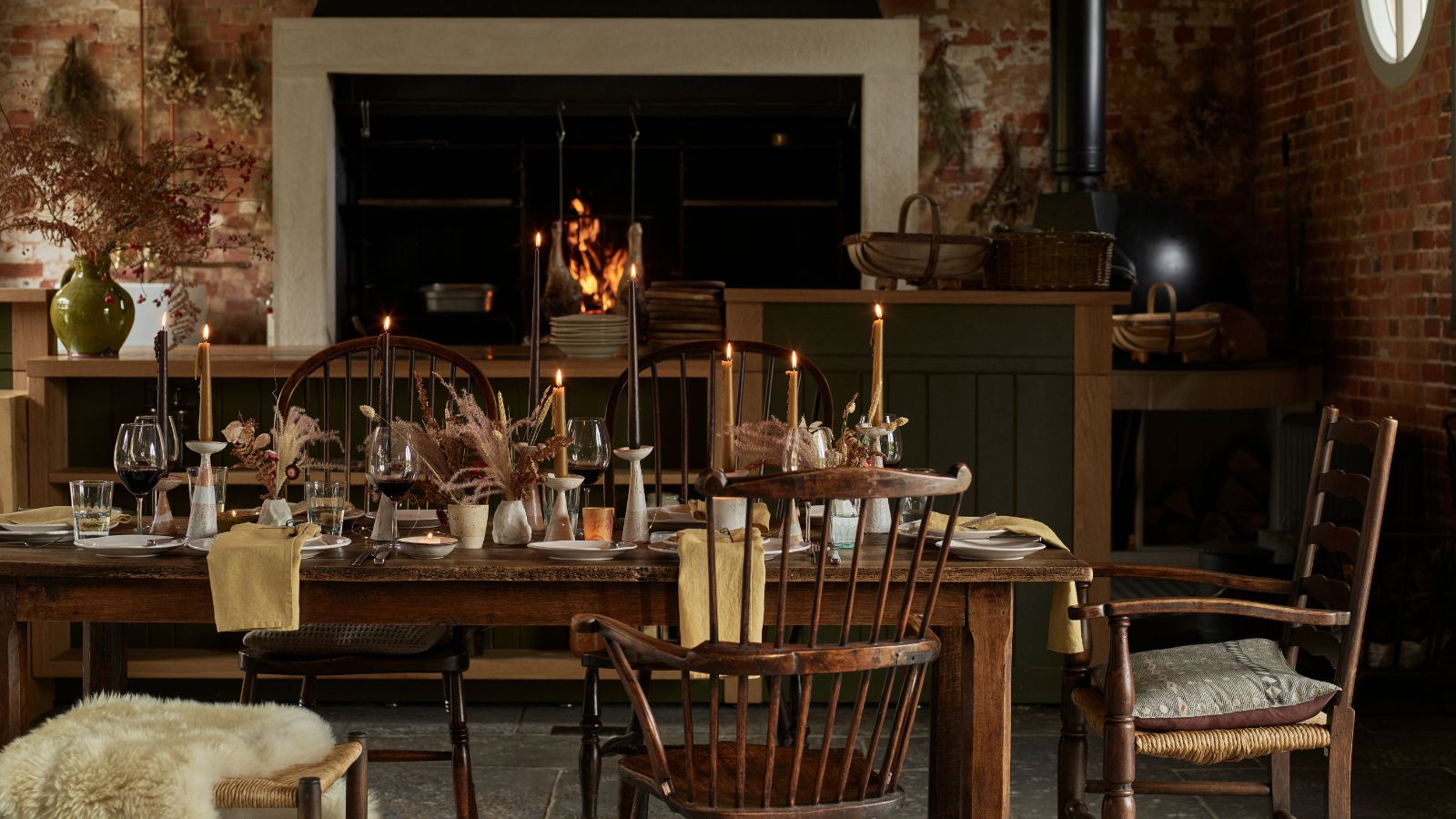
Design expertise in your inbox – from inspiring decorating ideas and beautiful celebrity homes to practical gardening advice and shopping round-ups.
You are now subscribed
Your newsletter sign-up was successful
Want to add more newsletters?
With cozy season officially here, we're spending more time indoors, and one element that instantly elevates a home is making use of the best home fragrances. It's simple and effective, so go ahead and add a luxurious layer of ambiance to your fall hosting, whether it's a lively scent to enhance a party or a soothing, delicious blend of cinnamon and vanilla for a cozy night in with loved ones.
From woody candles to aromatherapy options, our comprehensive guide will help you choose the ideal fragrance to make your home smell nice, creating a welcoming, beautiful, and enveloping atmosphere that you'll want to indulge in all season long.
And, with gifting season officially upon us, there's no time like the present to get ahead on your Christmas shopping, too. And, if you can't bear to part with these picks, treat yourself this fall!
Why Making Use of the Best Home Fragrance Matters
Your home fragrance can do more than freshen up the house and make it smell inviting to guests. It can have a significant impact on your mood and well-being, too.
Think of it this way – your home's scent is a silent mood maker. It can soothe, energize, welcome, or relax. Therefore, a carefully selected home fragrance does more than mask odors; it sets the tone for your living space, while a signature scent is a fun and easy way to reflect your personality and bring instant flair to your home.
So, whether you prefer to burn your best candle, switch on your best essential oil diffuser, or invest in one of the best reed diffusers, the right home fragrance can add dimension to your spaces, help you to sleep better, and even create an inspiring workspace at home.
The different types of home fragrance: Explained
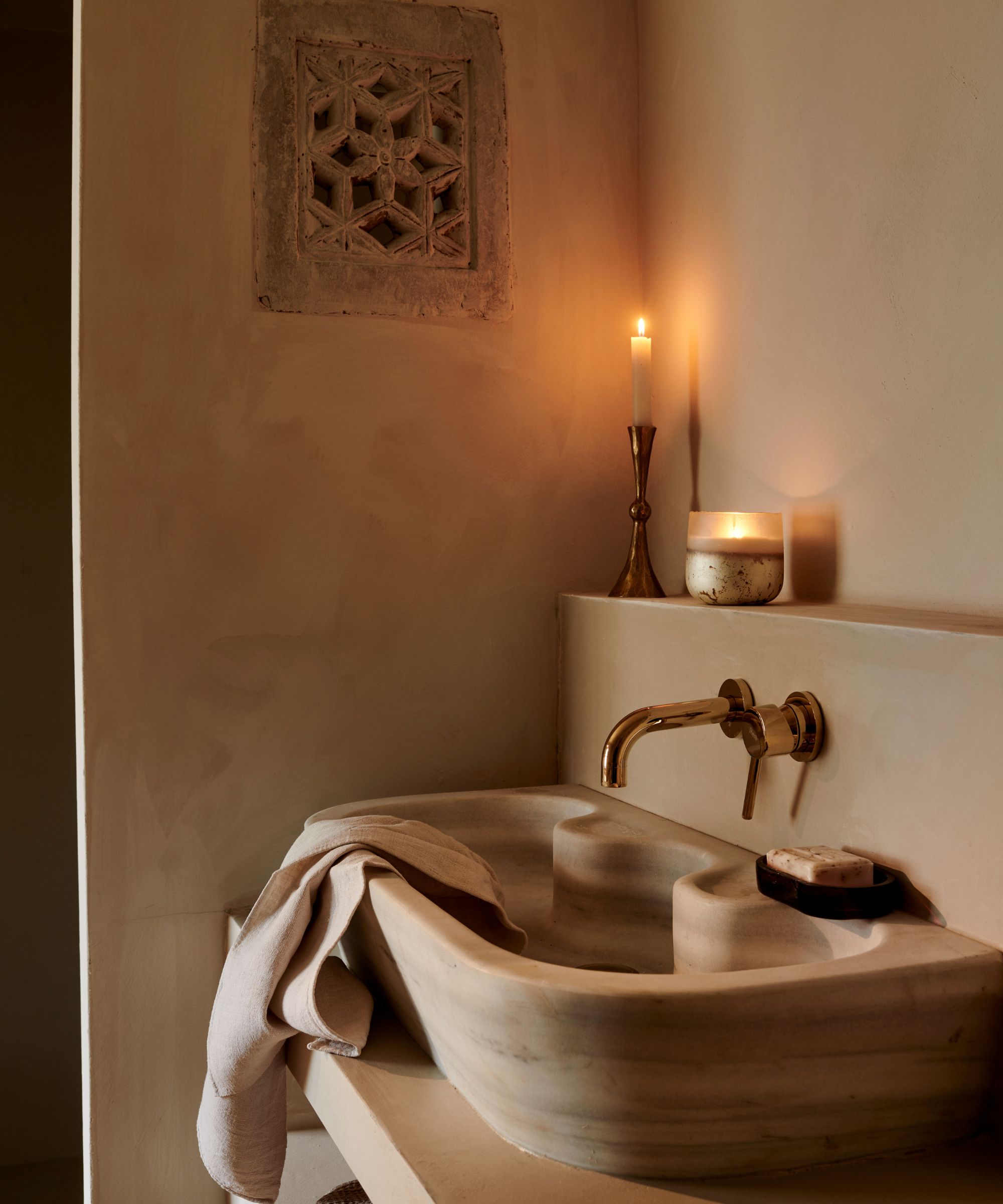
Different situations and scents call for different home fragrance types.
With so many different types of home fragrances to choose from, it can be tricky to know the differences and which is the best fit for you and your home.
Here's everything you need to know:
- Candles: The classic choice – candles combine visual ambience with scent, and are comprised of an often decorative vessel, wax, and a wick. Candle wax can be made of a number of different things, but soy, coconut, and beeswax candles tend to burn longer and are cleaner than those made with paraffin wax. As someone who has burned candles at home for at least 5000 hours, these are my favorite picks for creating a relaxing or inviting atmosphere. They're easy to set up, stop, and are effective for scenting a room easily. They're great for bedrooms (but put them out before you go to sleep to avoid a fire risk), bathrooms, and living areas. They're also available in a whole load of different fragrances – from florals to woody notes and cozy fall scents such as vanilla, pine and cinnamon – and for a wide variety of budgets. You'll just need to make sure to avoid any candle-burning mistakes to get the most out of yours.
- Reed diffusers: These are the best of the bunch if you prefer to make your home smell nice without candles and are looking for an easy, low-maintenance option. They slowly release fragrance oils through porous reeds and can last for weeks or even months. For that season, they're ideal for fragrance layering in hallways and entryways. Make sure to place them on a firm surface to avoid the vessel tipping over and making a mess, and keep them away from pets.
- Electronic oil diffusers: They may be one of, if not the most, expensive options, but electronic oil diffusers will last for years to come, and use ultrasonic waves to disperse fine mists of natural oils into the air. They tend to be popular in aromatherapy and wellness settings, and allow for complete customization in terms of scent and strength, with pure essential oils such as lavender for relaxation, or eucalyptus for clarity. As you can adjust them based on your needs and preferences, they're ideal for making a home smell nice when you're sensitive to fragrance. Many have timers and auto switch-off settings for convenience, too.
- Room sprays: Quick and easy, room sprays instantly freshen any space, but don't linger too long in the air. Use after cooking, before guests arrive, or whenever you want a burst of fragrance without commitment. You can even make your own homemade room spray, which is a fun and festive activity to do with friends when hosting over the holidays.
Candle favorites for every room
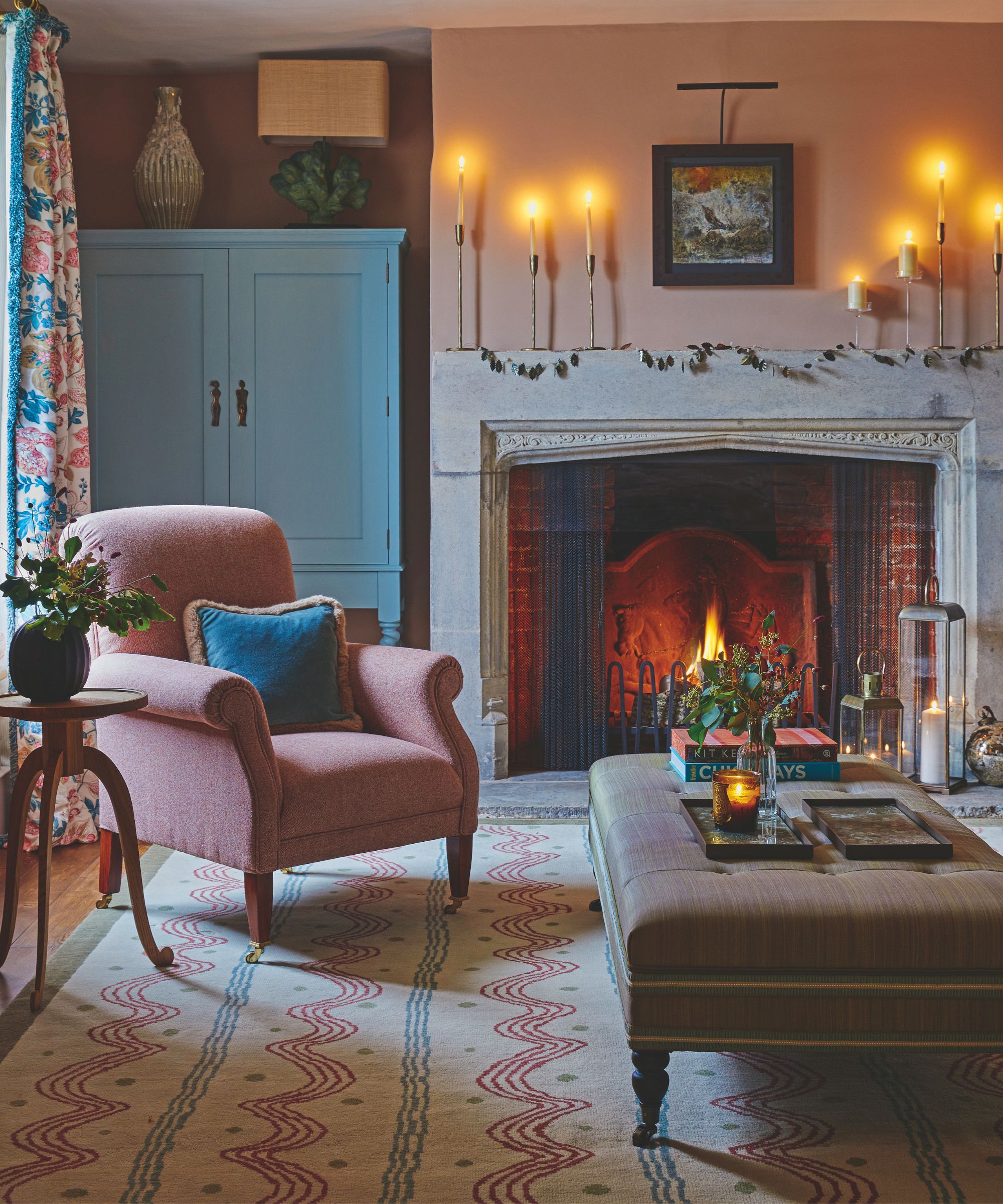
Lighting a candle is a brilliant way to instantly create ambience, and they make beautiful, thoughtful gifts, for loved ones, too.
Candles are a perfect way to add warmth, scent, and make a home smell expensive.
After testing candles in different rooms across my home for at least a month, these are my favorite picks:

Scent notes: Smoke and wood fire.
Wax type: Mineral wax.
Burn time: 50 hours.
To me, this candle embodies that coziness of the colder seasons, with enveloping notes of a roaring wood fire in deepest winter. This high-quality pick burns evenly, making it well worth the price,and I've never had a problem with tunnelling.

Scent notes: Cannabis accord and cedarwood.
Wax type: Vegetable wax blend.
Burn time: 60 hours.
This unique, grounding, earthy, and unisex scent is one of my absolute favorites and is ideal for larger spaces. This one's made with high-quality perfume oils, so expect a long-lasting scent that burns cleanly enough to reuse the vessel as a drinking glass.
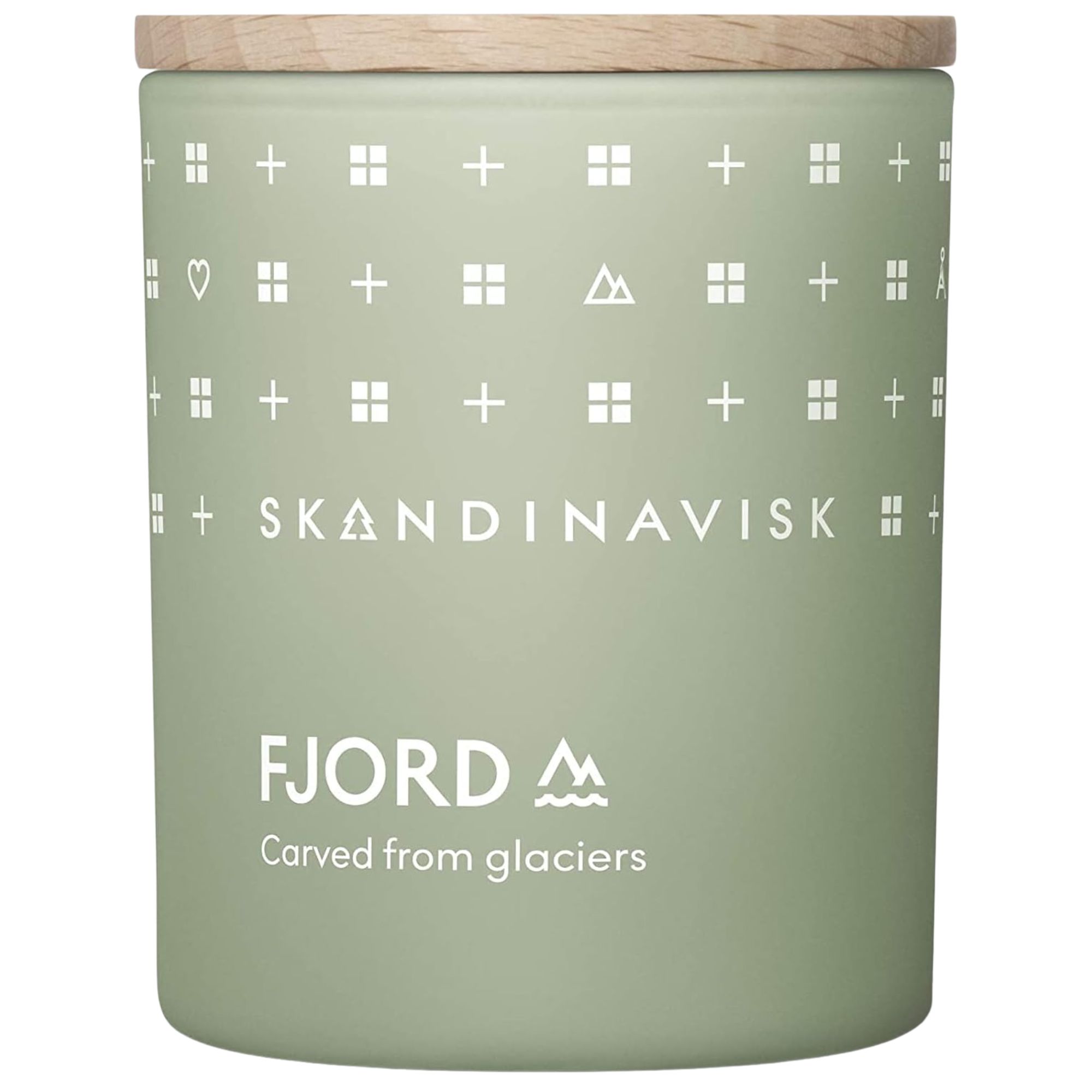
Scent notes: Orchard fruits and redcurrants.
Wax type: Rapeseed wax blend.
Burn time: 50 hours.
If you prefer something a little more fruity, this pick recreates the freshness of cascading waterfalls and sweeping forests of Norwegian fjords. Skandinavisk uses non-GMO, vegan and cruelty-free Swedish rapeseed wax, with FSC-certified packaging, so this is a great pick if you prioritize sustainability.
Reed diffusers for every need
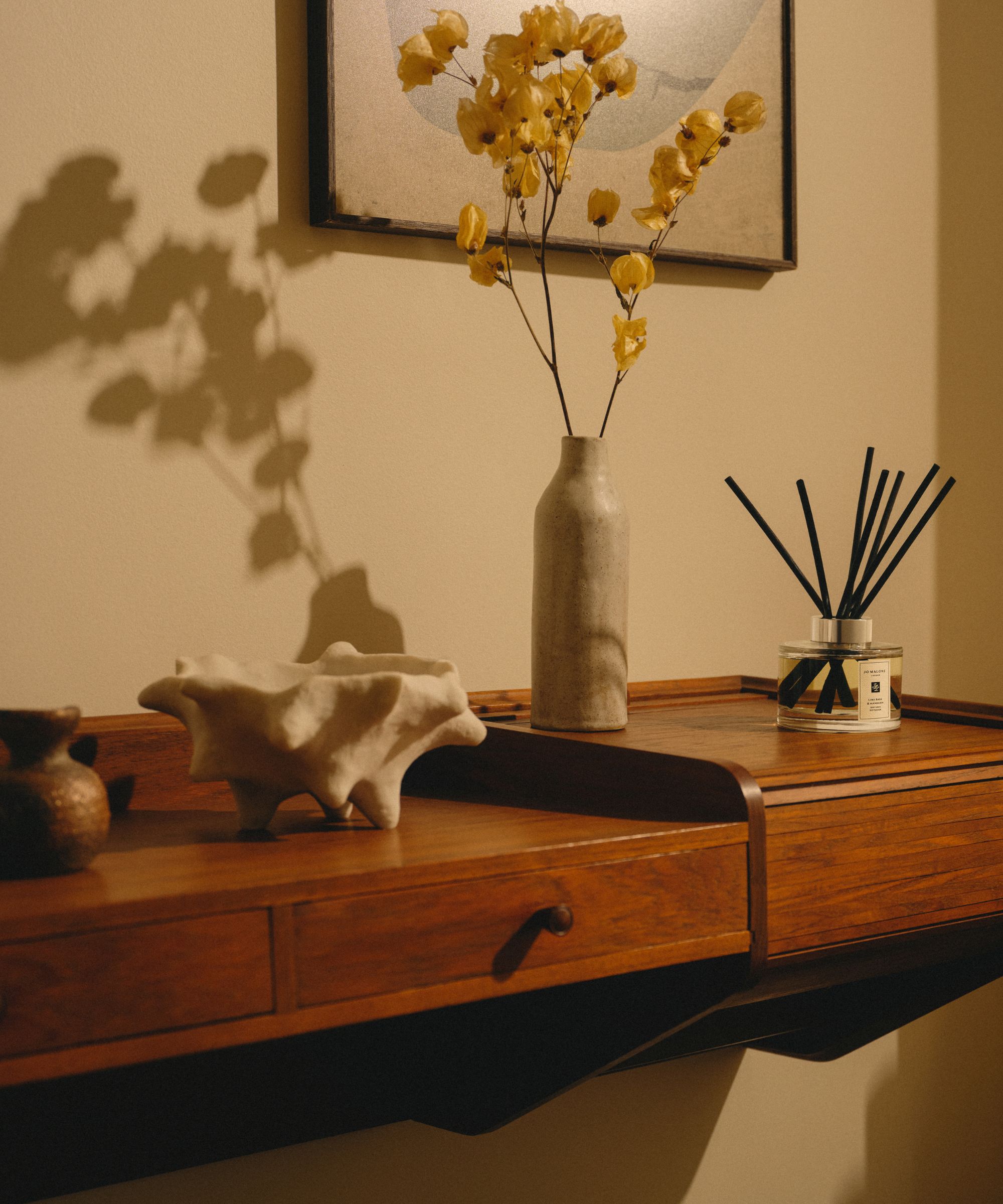
Reed diffusers are the perfect product for lazy home scenting.
Reed diffusers require minimal effort and provide continuous fragrance without flames or electricity, making them ideal for busy households.
These are my top picks after testing reed diffusers in different rooms in my home for at least a month:
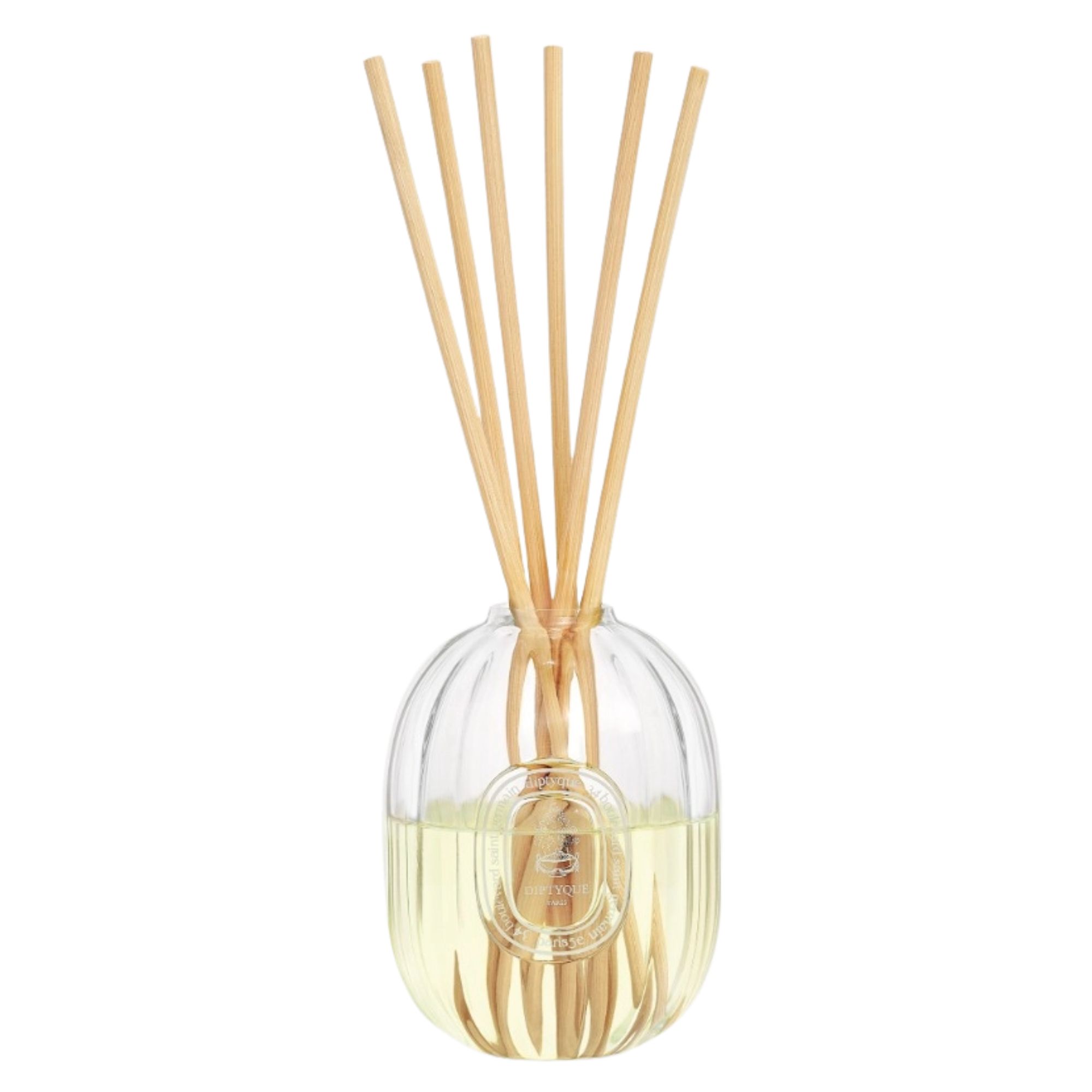
Scent notes: Woods, balms, and spices.
I adore this Ambre diffuser all year round, but it really comes into it's own during fall and winter with its spicy notes. Just be aware that the fluted glass vessel, available at Diptyque, is sold separately, but can be refilled and reused, and looks beautiful.
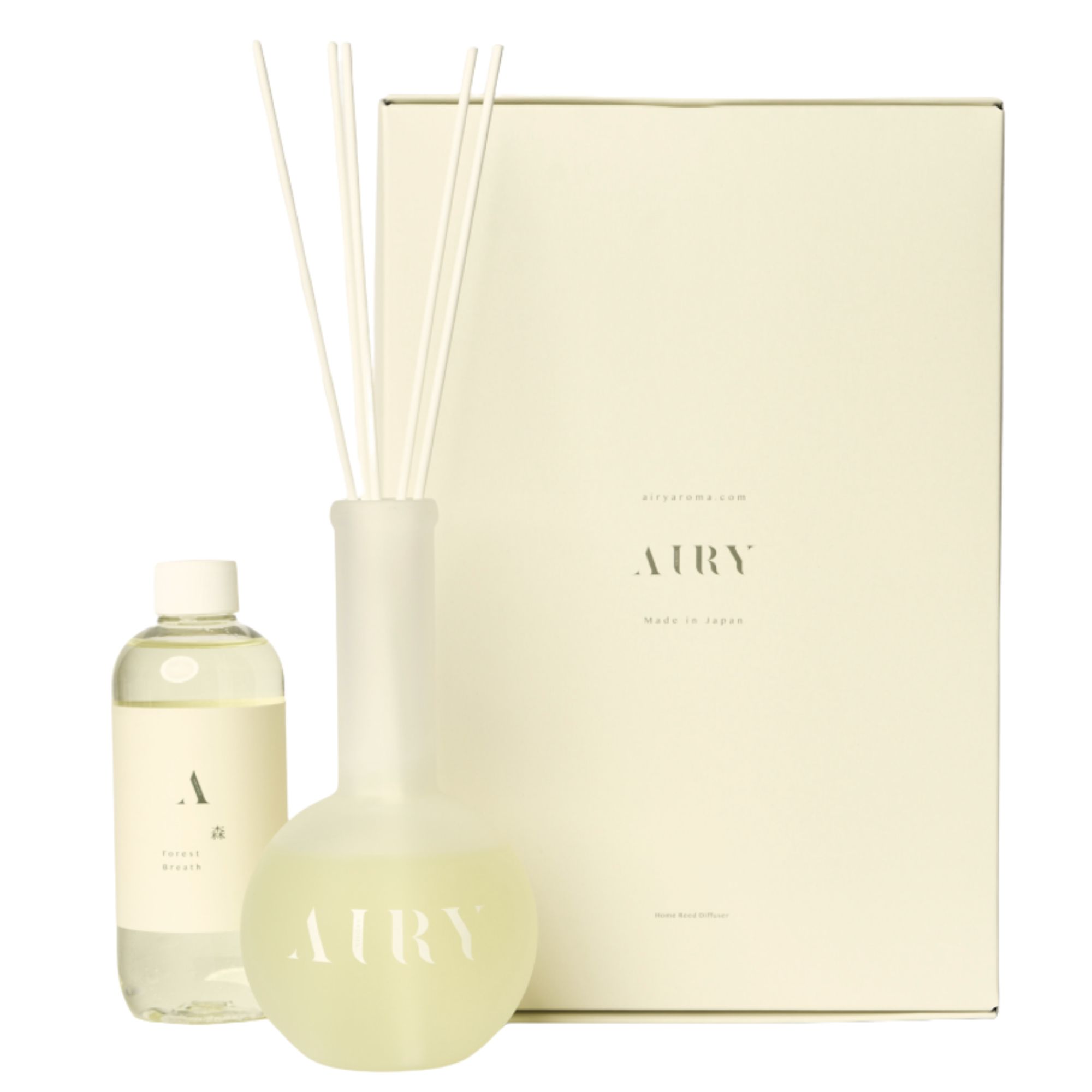
Scent notes: Air, trees, and herbs.
This little-known, herbal diffuser is absolutely stunning for creating a relaxing space, with an alcohol-free, perfume-inspired scent that's crafted in Japan. It fills a room quickly and invites an unparalleled sense of calm in minimalist interiors.
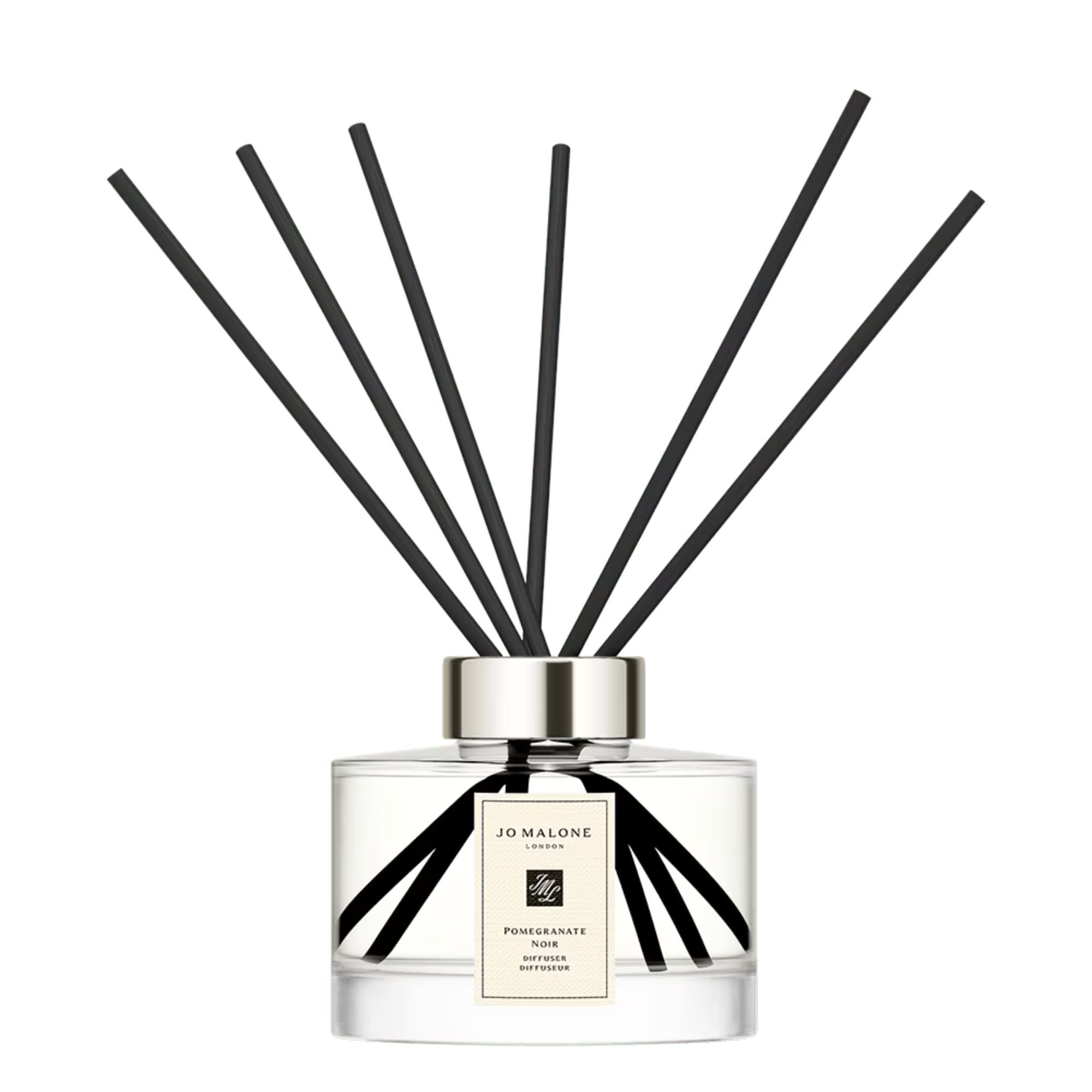
Notes: Pomegranate and guaiacwood.
You'd be hard-pressed to find a more punchy, statement diffuser than this pick. It's a classic bestseller for a reason, and don't be put off by the price tag – I've been using mine for almost a year and it still smells unapologetically strong.
Essential oil diffusers to suit every budget
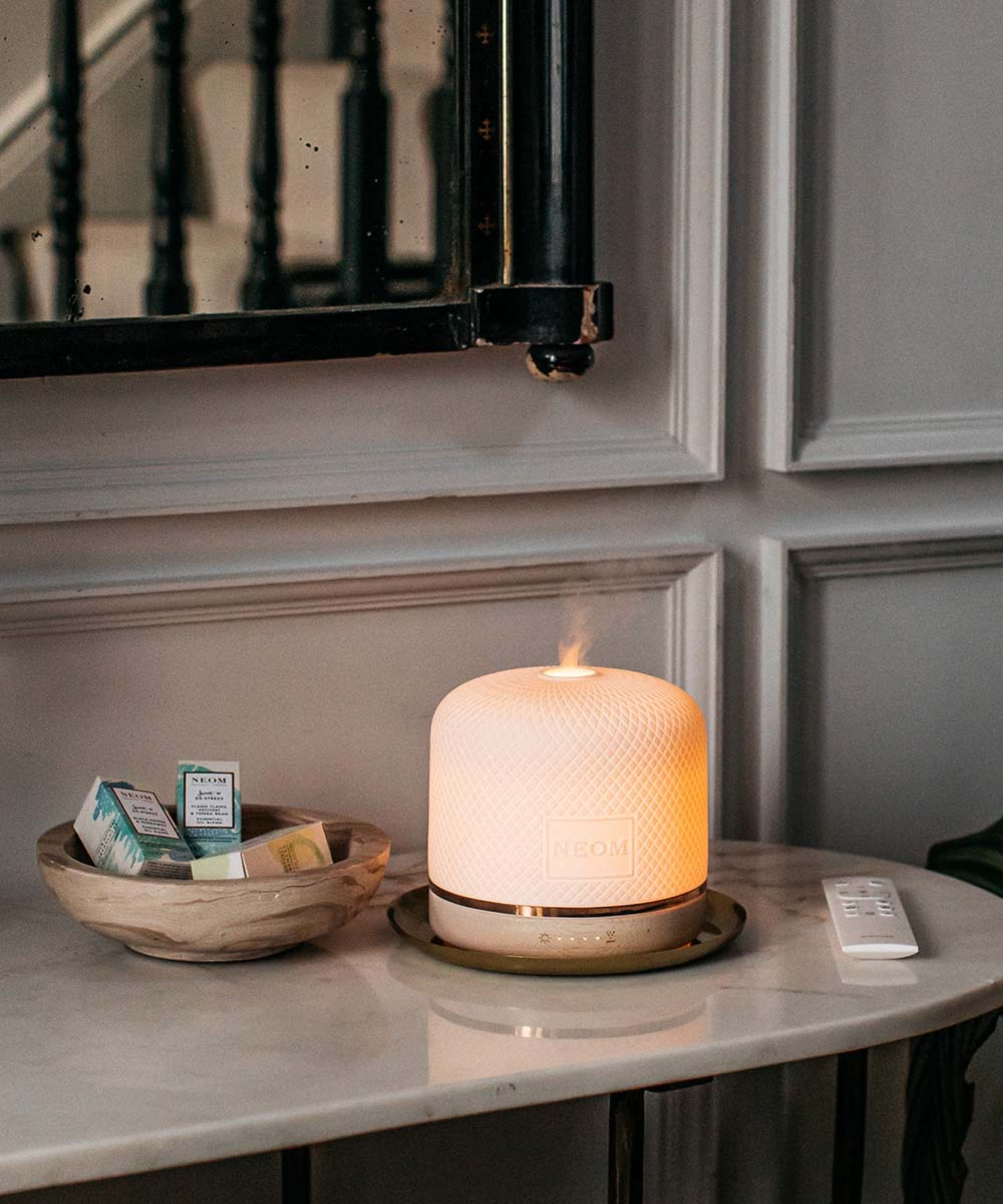
Make turning on your electronic oil diffuser part of your morning or evening ritual.
Essential oil diffusers use ultrasonic technology to disperse natural oils into the air, supporting mood and well-being. These diffusers double as health boosters, enhancing air quality while scenting your space naturally.
Here are our top picks and essential oils:
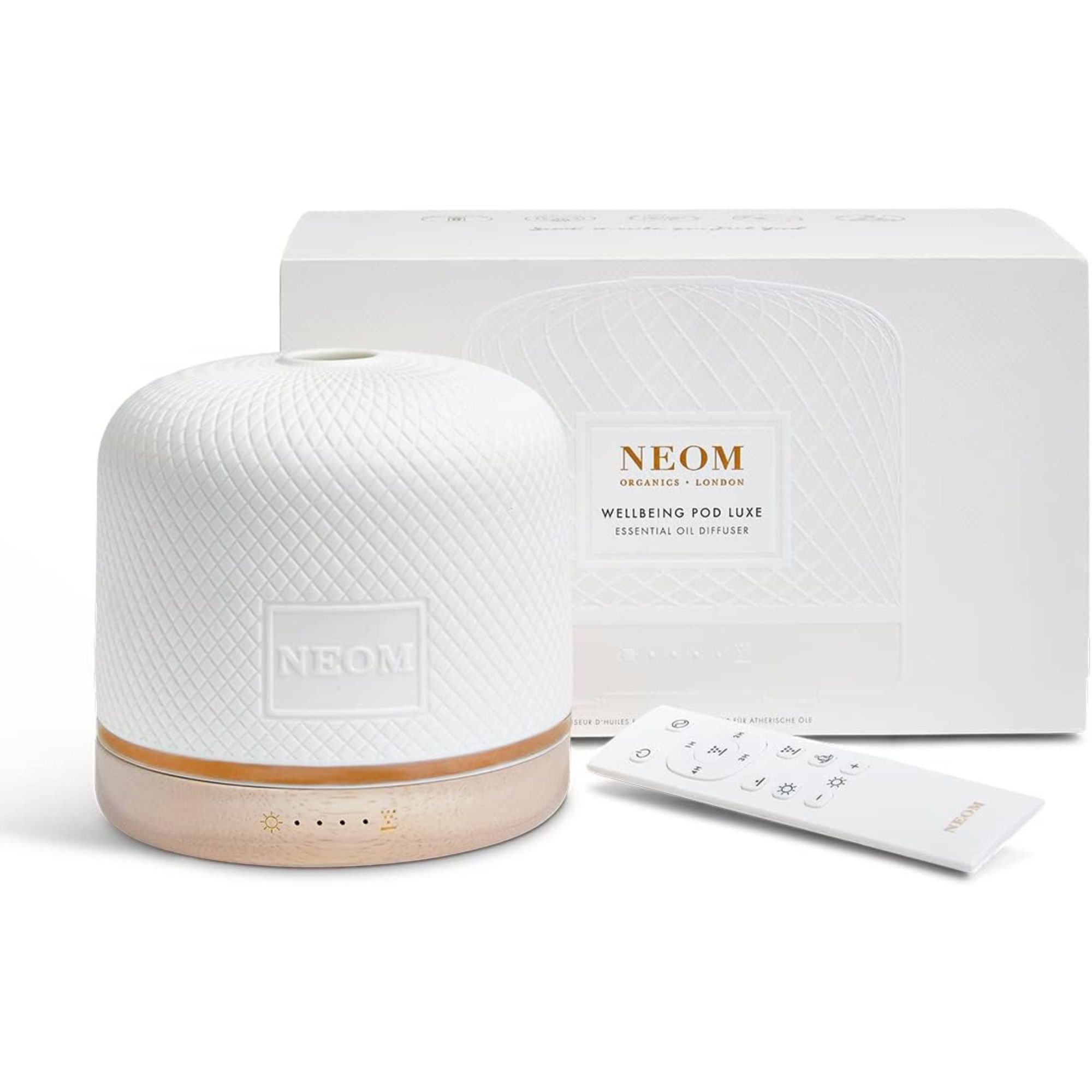
How stunning is this essential oil diffuser? With a decorative ceramic cover, it's designed for scenting large spaces, provides a gorgeous glow, and comes with a handy remote control.
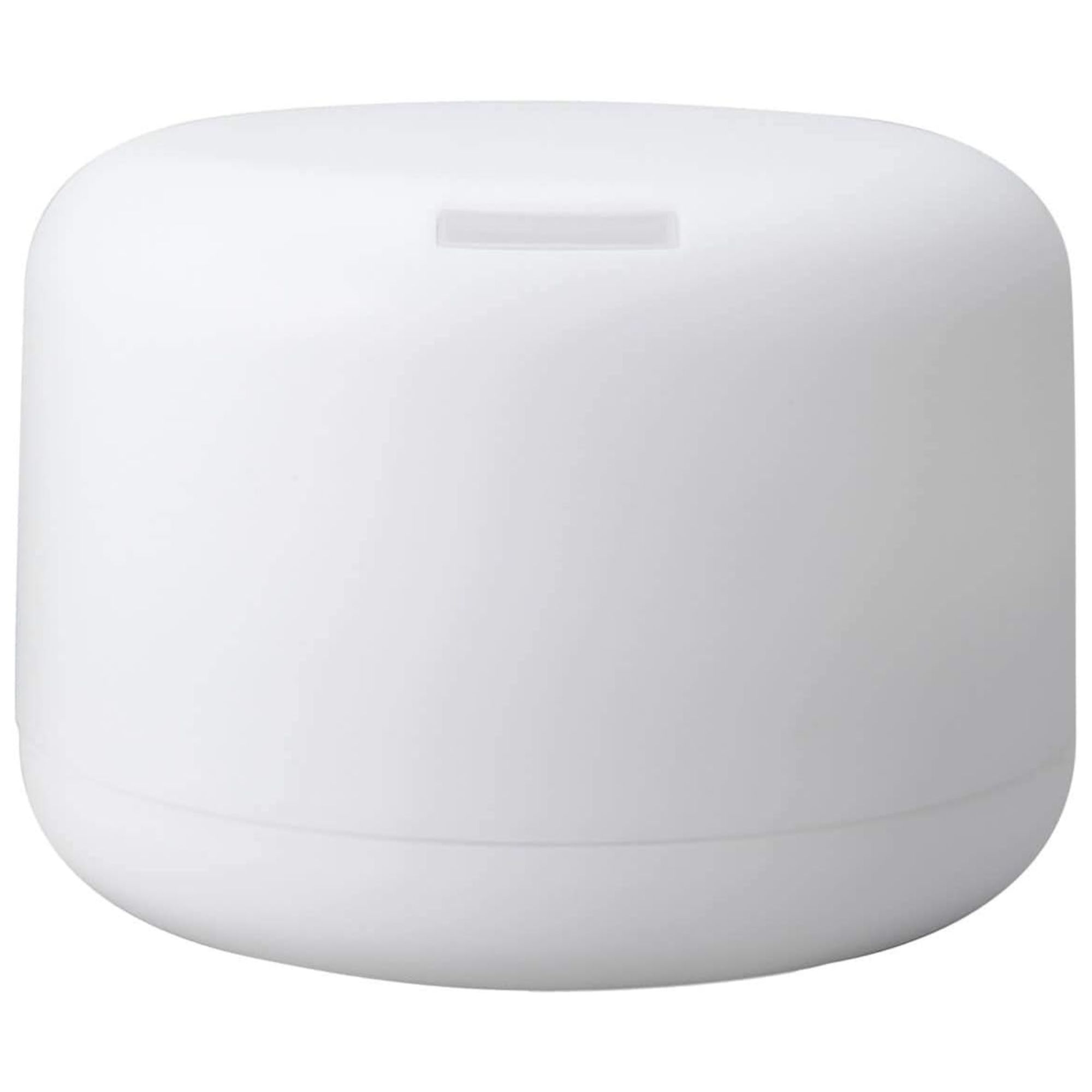
I've had, used, and loved this diffuser for years, and adore the sleek, stylish, and understated design that's a classic marker of Muji's Japanese origins. It features four timer settings and two handy brightness settings.
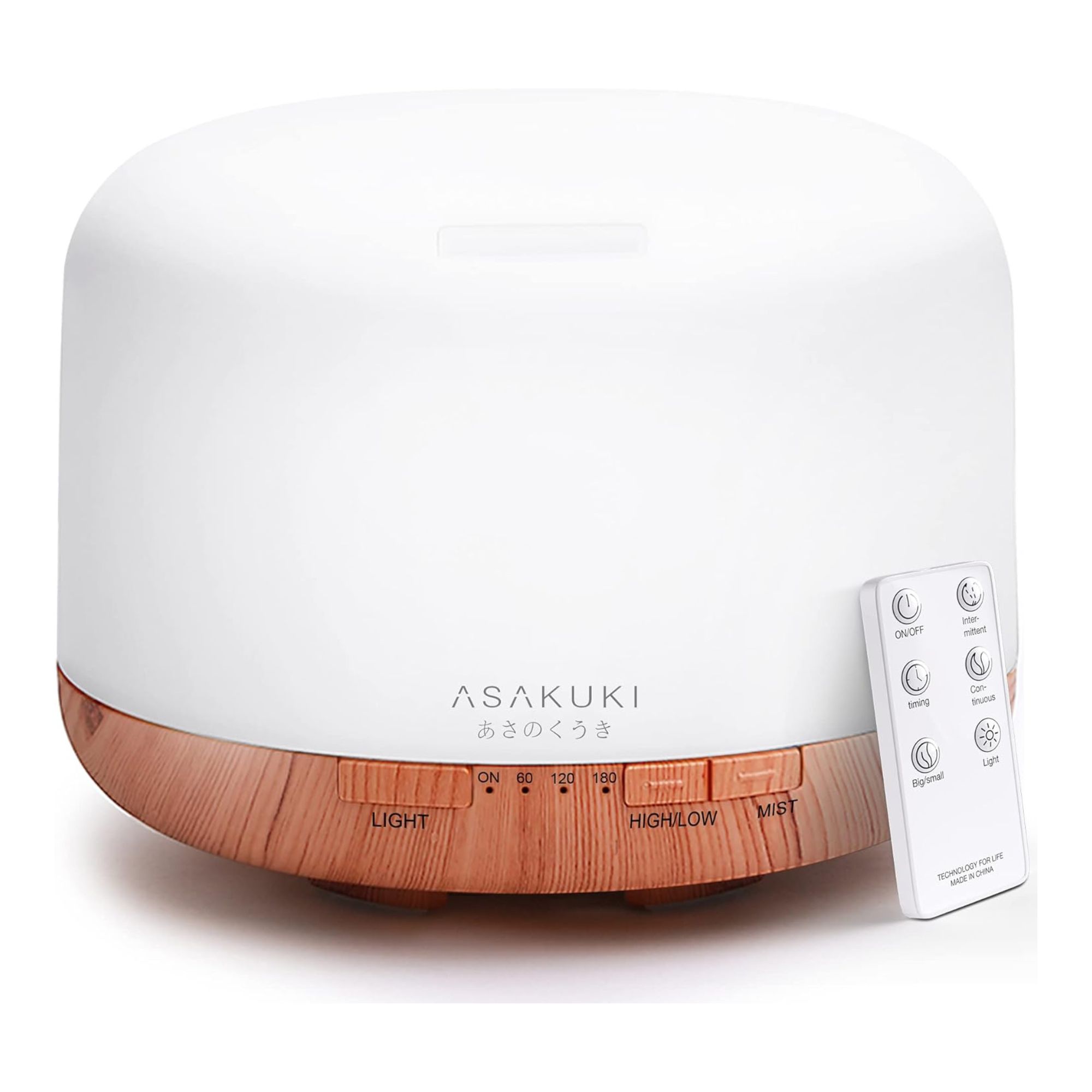
This electronic diffuser proves you don't need to spend big to scent well. It comes complete with seven different LED colors to choose from, an auto-off function, and an ultra-quiet fan.
Great starter essentials oils
If you don't know where to start when picking an essential oil for your electric diffuser, here are a few of our favorites. Just look for any that are 100% pure and therefore undiluted by any other additions:
- Cinnamon, available at Walmart in a 100% pure essential oil, along with scents such as clove, sandalwood, vanilla and orange, are perfect for evoking cozy fall sentiments and instantly putting you and your guests in a festive mood.
- Lavender, such as the Majestic Pure Lavender Essential Oil available at Amazon, is calming and ideal for bedrooms.
- Peppermint is energizing and great for workspaces. We recommend the Handcraft Blends Peppermint Essential Oil available at Walmart.
- Eucalyptus clears airways, and is perfect for living rooms, entryways and bathrooms. The Majestic Pure Eucalyptus Essential Oil available at Amazon is a number-one bestseller.
- Geranium instantly adds a gentle, luxurious scent to your space without being overwhelming or cloying.
Non-toxic and eco-friendly fragrance options
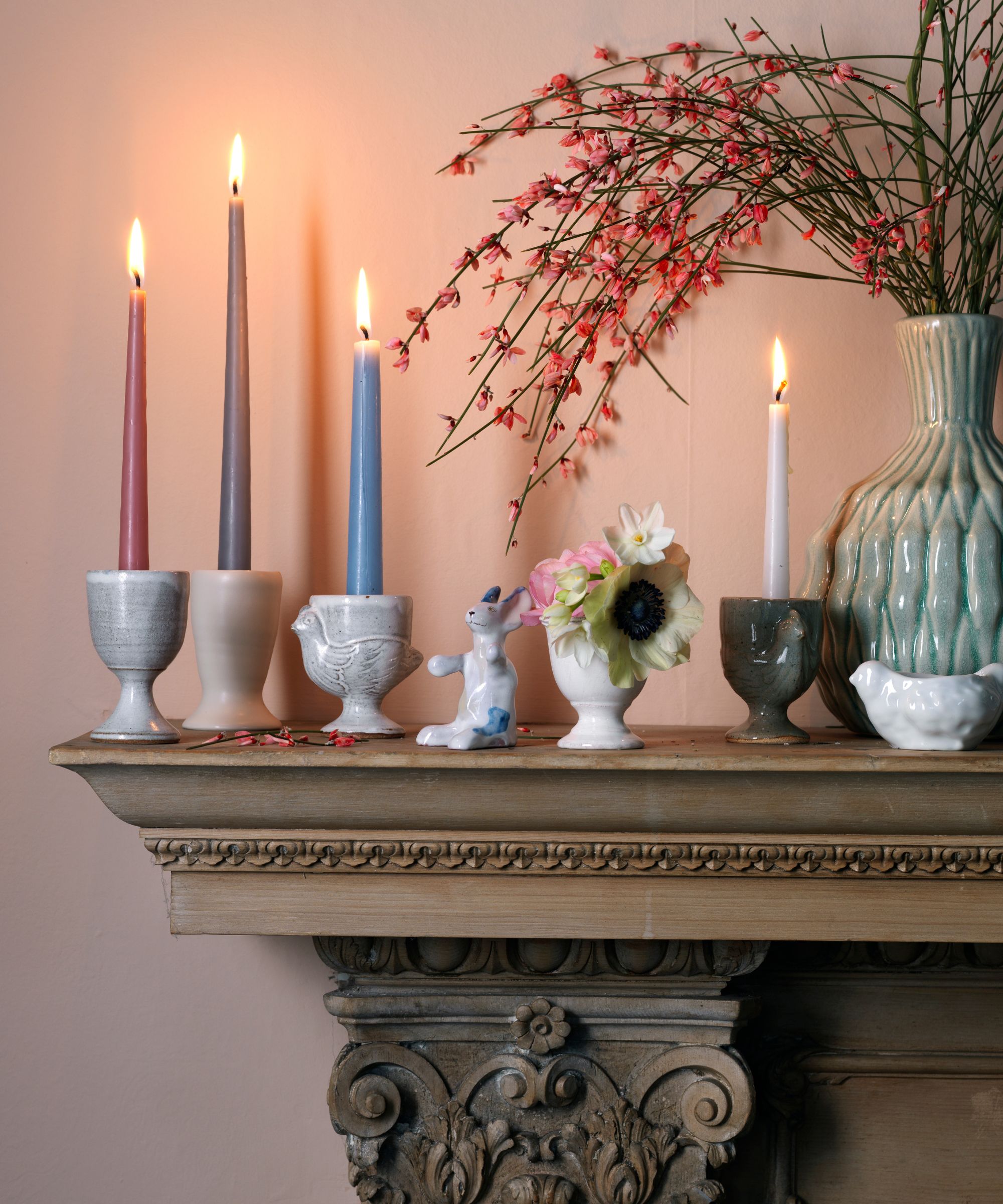
You can scent your home without straining your health or the environment when it comes to home fragrance.
If you're looking for safer, non-toxic ways to make a home smell nice, choose products that feature:
- Natural soy, beeswax, or coconut wax.
- Lead-free cotton wicks.
- Phthalate-free and synthetic fragrance-free oils.
- Recyclable or biodegradable packaging.
Brands like P.F. Candle Co., Lafco, Skandinavisk, and Mrs. Meyers are great choices for eco-conscious shoppers wanting effective home fragrance without harmful chemicals.
Using spring simmer pots and making the most of simmer pot recipes for fall and winter are also fantastic non-toxic ways to customize your home scenting, and are one of the secrets realtors love to use to make a home smell nice.
Seasonal scent suggestions
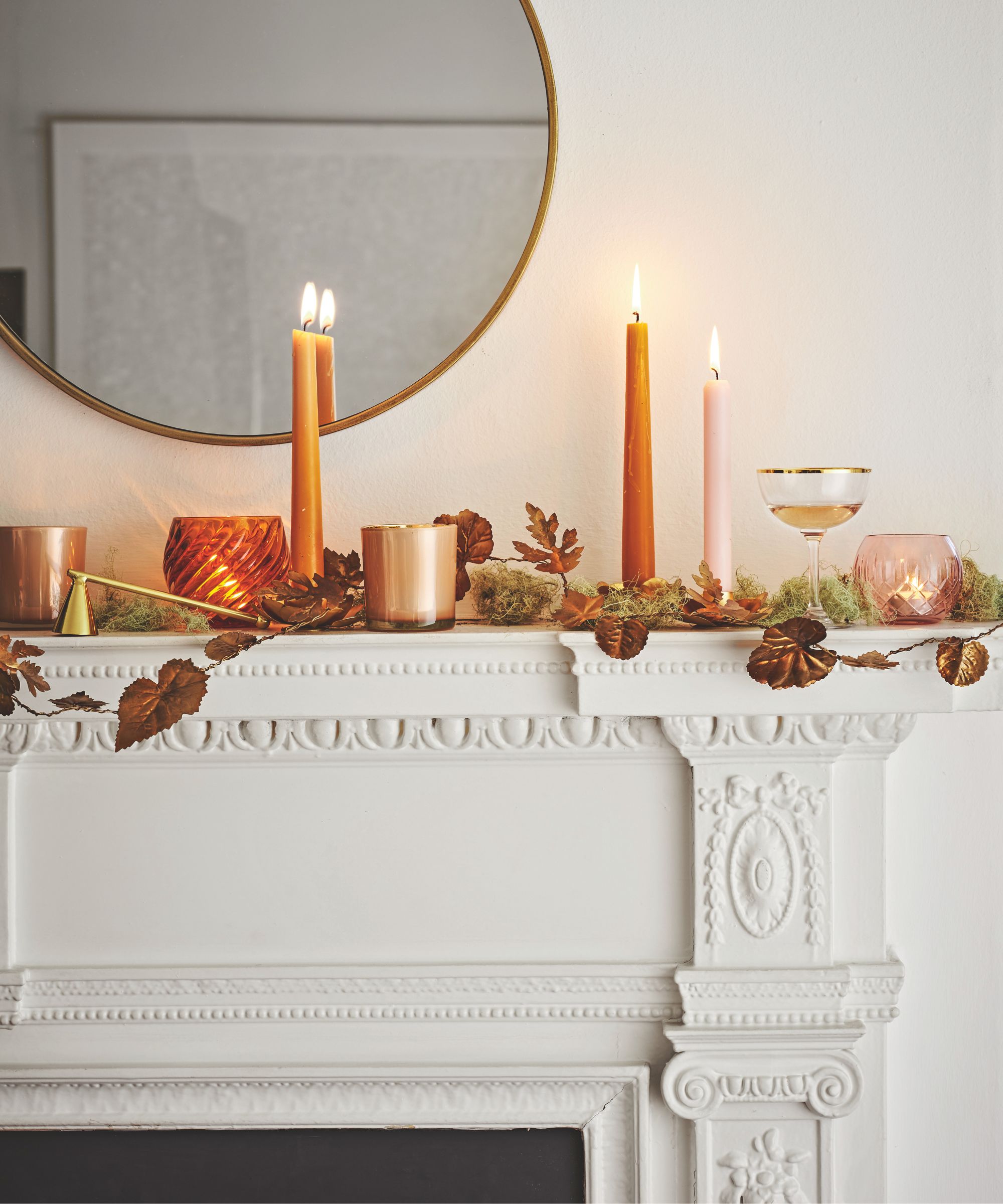
Why not try seasonal scenting to layer the mood at home.
I love rotating my home fragrance scents with the seasons, to keep my home feeling fresh and in tune with nature.
These are the notes I tend to opt for from one season to the next:
- Spring: Bright, fresh florals and herbs.
- Summer: Citruses, salt, and sun.
- Fall: Spices, wood, and gourmands. For inspiration, you can take a peek into the fall scents I'm shopping from Net-a-Porter.
- Winter: Pine, vanilla, and smoke.
FAQs
How long do reed diffusers typically last?
Most reed diffusers last between one and three months, depending on their size and your room's ventilation.
However, some stronger scents can last far longer, whereas more gentle choices might lose their smell more swiftly.
Are scented candles safe for pets?
I have four dogs at home and do burn candles, but only ever when my pets are out of the room. Opt for natural wax candles without synthetic fragrances to reduce risk, and, of course, always keep lit candles out of pets’ reach.
When it comes to essential oil diffusers, some essential oils, such as ylang ylang, can have an adverse effect on animals, particularly cats and dogs, so double-check before splurging and always dilute them. If you're unsure, check with your vet before using.
How do I avoid scent fatigue?
This isn't something I ever worry about, as I only use scents at home that I really love, but to avoid it, switch fragrances regularly and ventilate rooms to reset your sense of smell.
You can also try combining Feng Shui and fragrance to boost your home's chi' and influence the positive energy.
Can essential oil diffusers improve my wellbeing?
Yes, many oils have aromatherapeutic properties, such as relaxation, helping sleep, or boosting energy and focus.
The beauty in essential oil diffusers is that you can customize and create an atmosphere that's perfectly tailored to you, switching up what your home fragrance says about you from one day to the next.
Selecting the right home fragrance is a personal journey that blends your style, lifestyle, and wellness preferences, whether you want to enjoy a fresh laundry smell all year, make use of home scenting secrets to combat SAD, or take advantage of the most romantic scents for a home.
Design expertise in your inbox – from inspiring decorating ideas and beautiful celebrity homes to practical gardening advice and shopping round-ups.

Ottilie joined Homes & Gardens in 2024 as the News Writer on Solved, after finishing a Master's in Magazine Journalism at City, University of London. Now, as the Sleep Editor, she spends her days hunting deals and producing content on all things sleep – from mattresses and sheets to protectors and pillows, all of which she tests in her own home. She also has particular expertise in home fragrance, covering everything from candles to reed diffusers.
Previously, she has written for Livingetc and Motorsport Magazine, and also has a Master's degree in English Literature and History of Art from the University of Edinburgh, where she developed a love for inspiring interiors and architecture.